
HK Summit Latest: BlackRock Says $4 Trillion Sidelined
Wall Street’s elite gathered for a second day in Hong Kong for the city’s annual financial summit to
2023-11-08 10:54
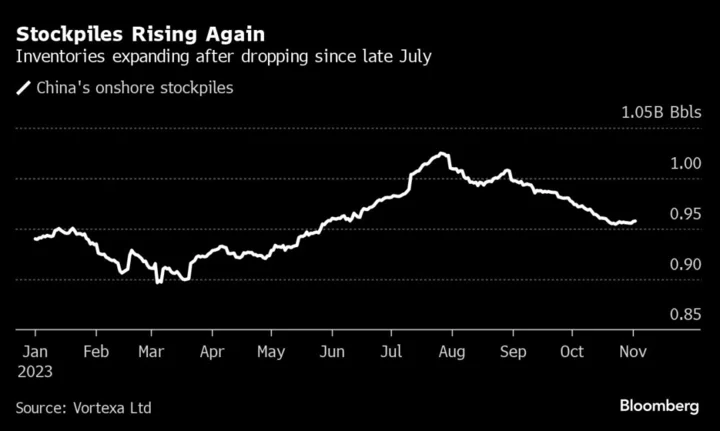
China’s Oil Demand Outlook Is Worsening as Winter Approaches
The oil demand outlook in China, the world’s biggest importer, isn’t offering much inspiration to bulls as the
2023-11-08 10:21

Apple Rolls Out Fix for Apple Watch Battery-Life Issues
UPDATE 11/7: Apple has rolled out a fix for these battery issues with watchOS 10.1.1.
2023-11-08 09:23

Nintendo Now Turns to ‘Zelda’ Movie After ‘Super Mario’ Success
Nintendo Co. is developing a live-action film based on its The Legend of Zelda video game franchise, further
2023-11-08 07:27
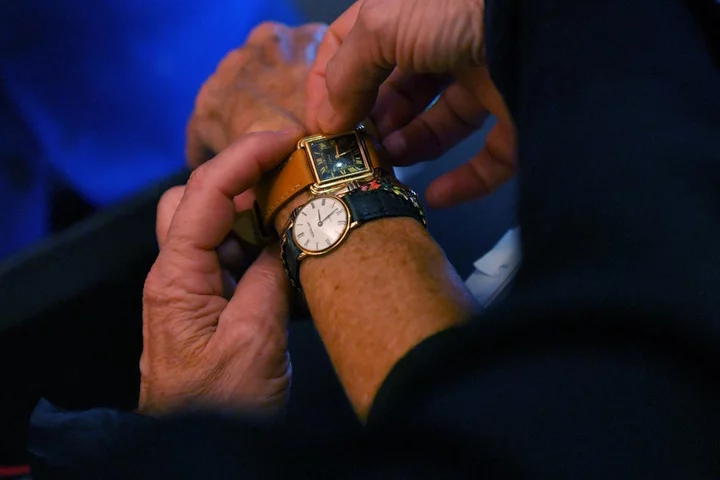
Should we end daylight saving time? Doctors think it’s bad for our health
Doctors have called for the elimination of daylight saving time citing potential harm that may result from the practice. Daylight saving time is a practice of setting the clock forward by an hour beginning on the second Sunday in March in order to use light from the sun for longer. Once winter arrives, clocks are then set backwards an hour, ending the practice around the first Sunday of November, so people can get an extra hour of sleep. Doctors from the American Academy of Sleep Medicine (AASM) called for an end to the practice, citing potential harms that can result due to changes to and from daylight saving time. Instead, they are in favour of setting standard time, which is the time when the clocks are set back in the fall, permanently. Doctors say such a permanent standard time aligns best with the human body’s natural inner clock. “By causing the human body clock to be misaligned with the natural environment, daylight saving time increases risks to our physical health, mental well-being, and public safety. Permanent standard time is the optimal choice for health and safety,” Adeel Rishi, chair of the AASM Public Safety Committee, said in a statement. AASM had previously shown in a study in 2020 that Daylight Saving Time (DST) is linked to “increased risks of motor vehicle accidents, cardiovascular events, and mood disturbances” as people annually “spring forward” to adopt the practice. Previous research has also found that pushing the clock back an hour can impact mental health. An analysis of data from more than 185,000 Danish people found an over 10 per cent rise in depressive episodes during the shift from summer time to standard time. The position to end DST is also supported by previous statements adopted by organisations such as National Sleep Foundation and the American Medical Association. “Permanent standard time helps synchronize the body clock with the rising and setting of the sun. This natural synchrony is optimal for healthy sleep, and sleep is essential for health, mood, performance, and safety,” James A Rowley, president of the AASM, said. However, the US Senate has passed The Sunshine Protection Act in March 2022, which would make US daylight saving time permanent. But this bill still requires approval by the House and president Joe Biden to be coded into law. Read More Here’s what a sleep expert says about the time change as clocks change in US Daylight saving time 2023: When do the clocks go back in the US? This is what changing the clocks can do to your health Mother of newborn triplets shares how they react differently after eating Stephen Fry uses walking stick after breaking his leg, pelvis and ‘a bunch of ribs’ Mother’s song about how easy it is to be ‘such a good dad’ goes viral
2023-11-08 06:46

EBay Projects Holiday Revenue That Falls Short of Estimates
EBay Inc. issued a bleak revenue outlook for the busy holiday quarter, suggesting the company continues to struggle
2023-11-08 05:57
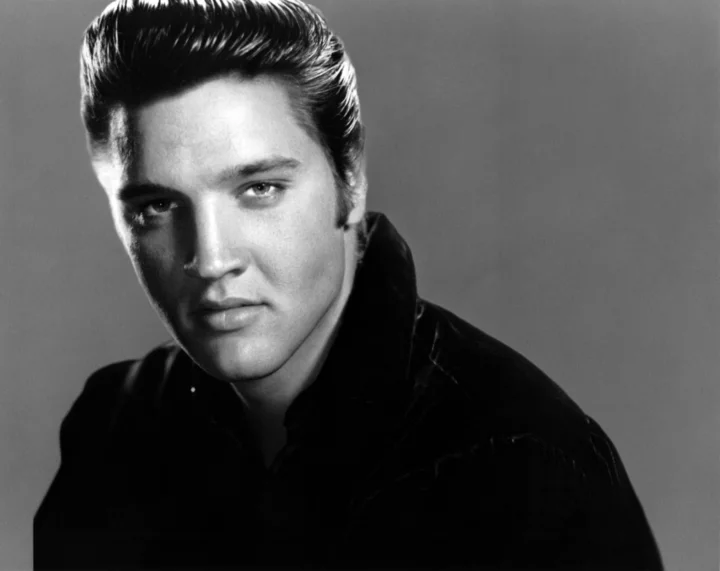
Elvis Renaissance Helps Graceland Make Up Its Debt Payments
Elvis Presley’s fans are breathing life back into Graceland, the singer’s 120-acre Memphis estate that’s been preserved in
2023-11-08 03:21

John Paulson Seeks Sanctions on Ex-Business Partner, Lawyers Over Fraud Suit
John Paulson asked a judge to sanction his former Puerto Rico business partner and his lawyers for filing
2023-11-08 01:50
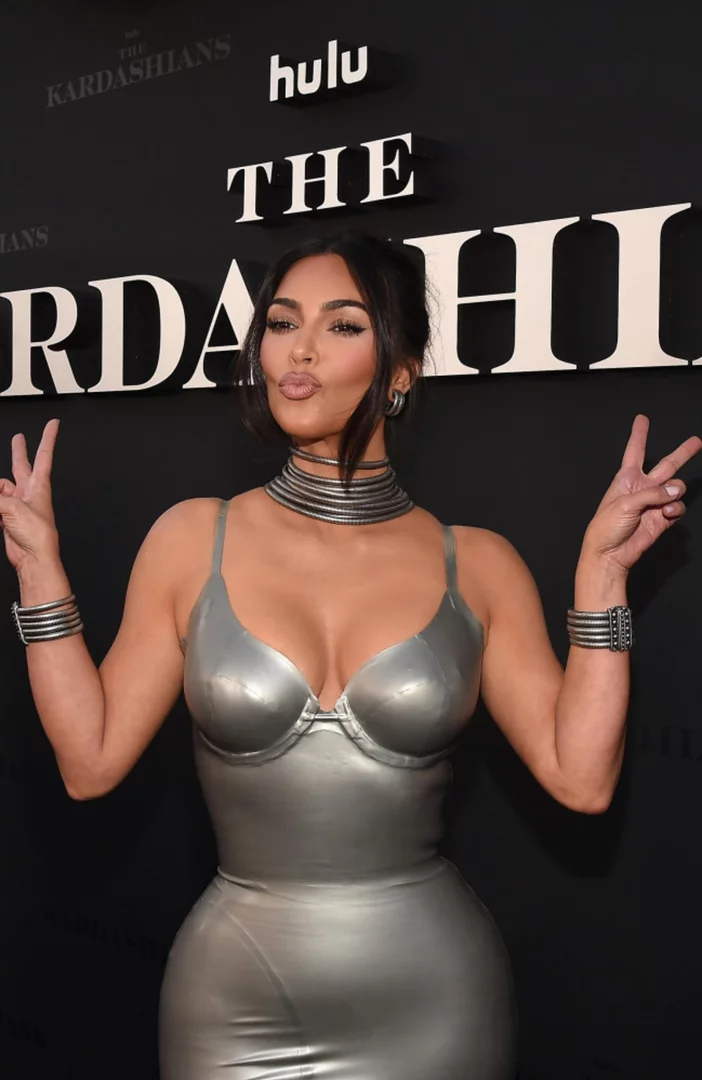
'I’ve had Swarovski figurines and crystals my whole life...' Kim Kardashian reveals collectible she can't get enough of
Kim Kardashian has been collecting Swarovski figurines her "whole life" and loves the crystal animals and characters that the company creates.
2023-11-08 00:21
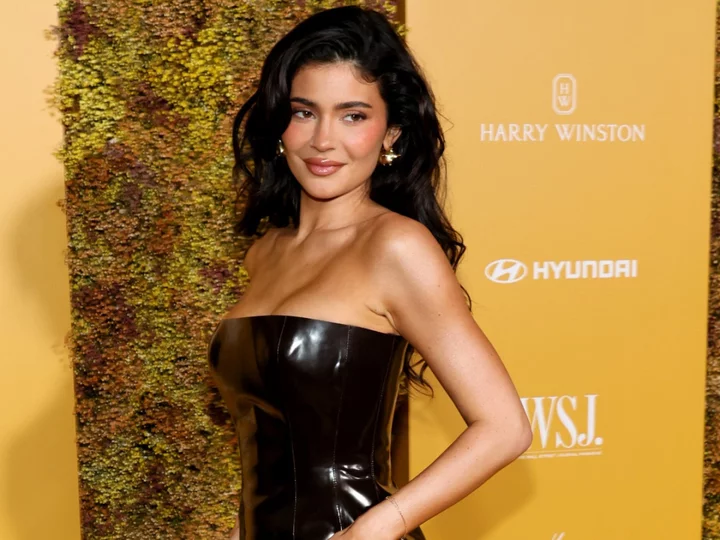
We can’t bash or boast billionaire Kylie Jenner’s brand – yet
The launch of a celebrity brand is both mundane and rousing. Though it’s rarely groundbreaking when a public figure announces their new entrepreneurial project, due to the sheer frequency of them, we’re almost pressured to add our opinion regardless. Conversations circulate, complimenting inventiveness and speculating failure – and we, as their around-the-clock audience, are enticed to pick a side because after all, it’s a part of pop culture, a phenomenon which relies on commentary. Most recently, Kylie Jenner, the 26-year-old reality star responsible for her $1bn eponymous beauty company Kylie Cosmetics, declared her next career move in the fashion industry with her own clothing line, Khy. And there’s been a lot of talk. The moniker being motivated by her childhood nickname, Khy presents a line of mod items priced reasonably. To create the clothing line, Kylie partnered with her mom, Kris Jenner, as well as the impressive investor duo Emma and Jens Grede, co-founders of numerous celebrity brands such as Skims, Good American, and Brady. Khy aims to bridge the gap between quality and affordability with versatile pieces priced low, but high enough to forego the assumption of cheap garb. Between a bundle of faux leather outerwear with a subtle air of raunchiness, to nylon basics meant for layering, the fashion muse, along with designers Nan Li and Emilia Pfohl from the Berlin-based brand Namilia, crafted the first drop, surpassing $1m in sales within the first hour on 1 November, per a People report. “For this line the main goal is to bring major fashion pieces, and work with these amazing designers and have it be accessible – having everything in this first drop be under $200 dollars was very important to me,” the innovator told Vogue writer Luke Leitch. In conversation with the Wall Street Journal Magazine for its “Innovator’s Issue” ahead of the line’s debut, Kylie revealed she intends to rotate in a myriad of guest creatives to collaborate with throughout the year, with new drops to come every couple of weeks. However, the overarching concept for each collection will reflect her personal wardrobe and taste – this first, “001”, blending edgy character with biker chic. Her intention is allegedly to provide consumers with options suitable for every mood, which means we shouldn’t expect all pleather moto all the time. For me, the beauty mogul’s new venture drove a discerning fact to the forefront of my mind – luminaries are never going to stop creating namesake brands due to their financial standing and privileged connections, no matter their industry expertise or lack thereof. And this certainly rings true for the Kardashian/Jenners, a family with a growing appetite for commercial businesses. Admittedly, I was frustrated by Kylie’s decision to be an architect of her own label, knowing there’s a torrent of independent designers out there who’ve been working on contemporary projects for years and aren’t as widely recognised. For smaller creators, increasing brand visibility is challenging, while celebrities automatically have a widespread presence. But does that mean we should shame Kylie for utilising the mass following she’s built to advertise her new brand? Can we even compare the work of autonomous creatives to that of public figures? No. Because celebrities will inevitably take advantage of their notoriety, we need to be careful with how we talk about their business ventures, ensuring we aren’t lending fruitless attention to irrelevant points, unnecessarily boasting them or prematurely bashing them. According to Mosha Lundström Halbert, a fashion news writer and founder of “Newsfash,” an innovative media company, just as we can’t put celebrity clothing brands into the same category as renowned fashion houses like Gucci or Balenciaga, we can’t compare them to smaller designers who started their career in school. The industry presents us with a platter of concepts, and they shouldn’t be grouped all-together. “Just because something is fashion, just because a company creates clothing doesn’t mean that it’s a fashion brand,” Halbert told The Independent. “My expectations for brands that celebrities come out with are very different than how I look at a brand by a designer who has either come out of a fashion school or worked in the industry.” “I think we can’t lump everything together just because they’re all creating clothing and accessories. I don’t see this as in competition with other established fashion brands, especially when you look at the price point and how many brands are already on the market,” she continued. “Small designers need to be focusing on their own work and not... worrying about what Kylie Jenner is doing. Like, there is completely different lanes.” The target audience for an independent designer isn’t the same for a celebrity creator. Famed figures, like Kylie, with millions of followers, are hoping the mass of people who show a dedicated intrigue in their personal style, reccomendations, and taste will want to purchase clothing with their name on it. “The most important thing to understand is that celebrity launches stand for ‘launches for the masses’. Whereas, most small designers have their niche audiences that are more community-driven,” Bernard Garby, a popular fashion news TikToker, pointed out. As someone who works on the commercial side of luxury goods, Garby reiterated to The Independent that there are different markets underneath the vast umbrella of fashion. “They are two complete opposite markets with two absolutely different target audiences. Therefore, my advice to smaller brands is to focus less on competition and focus more on growing their communities and developing their loyalty because that is their key to success,” he said. “If you’re a small designer with big commercial dreams, in fact, watch those celebrities and look at how they commercially approach and navigate their launch and get inspired by their work and see if there is anything you can adapt to your own business from their strategy,” Garby added. Whether we should speculate the success or failure of Kylie’s clothing venture, it’s too early, even though the reported sales so far suggest a favourable outcome. But there are a few factors that support both sides – the first being her unique selling point. At 17, Kylie capatilised on her love of makeup, noticing a need for matching lip liners and lipsticks as a frustrated consumer herself. During this time, she was also vocal about feeling insecure concerning the size of her lips, constantly overlining them before she got temporary filler in 2015. Therefore, the decision to outset a makeup brand was motivated by her identity. Her first product – a selection of lip kit duos – catalysed her entire empire. In Garby’s opinion, Kylie’s first company was “organic”. When we look at the streamline of successful businesses born from the Kardashian/Jenner family – Skims, Good American, Poosh – all were built based off an “organic” or intimate selling point. For Kim, making shapewear sexy reflected her longstanding sentiment of being unafraid to wear what you need to, to feel comfortable and confident in your figure. For Khloe, someone who’s spoken candidly about battling body insecurities amid public scrutiny, Good American focuses on size inclusivity, wanting to represent and empower women with a range of different body shapes. And Kourtney, the sister who’s avowed her love for wellness openly, invented Poosh, a “modern guide to living your best life,” according to her. “Looking at the Kardashians, it’s actually really interesting. They’ve tried a lot of businesses that haven’t panned out,” Halbert remarked. Between Dash, the family’s retail chain born in Calabasas which eventually closed in 2018, to “The Kardashian Kard,” a prepaid MasterCard debit card, the ravenous reality bunch weren’t always triumphant in their enterprises. So, if having an intimate devotion or being established in a particular niche has proven to help Kardashian brands prosper in the past, does this mean it won’t be long before Khy goes under? Speaking to Vogue, Kylie pointed to the personal anecdote which drove her to create Khy, ensuring consumers understand this venture isn’t all that arbitrary. Like so many, Kylie was a “Tumblr girl” during her teen years, drafting mood boards to mirror her current obsessions. Dubbed “Kalifornia Klasss,” the adolescent used the platform to realise herself then and the woman she’d become. She was “King Kylie,” and Khy has every bit to do with that persona. “It is really significant. King Kylie for me was less about what I was wearing, and more about how I felt in that era. I just felt confident, free, and I didn’t care what anyone said,” she said. “I think that there’s a lot of power in that and I’m definitely channeling my King Kylie energy this year.” Aside from having a unique selling point, Garby noted how pertinent product quality is, especially inside a competitive market. A celebrity can be a known fashion muse, model, or aspiring designer, but a brand will never truly thrive if the quality of the product is poor. “Establishment can help you drive awareness - but in the end - it comes down to the actual product that they try to sell,” Garby noted. Based on the current selection of faux leather items, made from thermoplastic polyme, which can take up to 500 years to decompose, can emit toxic chemicals once discarded, and have the potential to shed microplastics while being used, per a Nomomente analysis, I personally don’t see how Khy differs from other designs already out there, with the cropped leather jacket and strapless midi dress seemingly familiar to what you see priced similarly at Zara. Nevertheless, Kylie’s not alone, being backed by Emma and Jens Grede, the all-too-competent pair who are already responsible for the continued achievement of other Kardashian brands. Emma, who grew up in London, co-founded Good American with Khloe, and Safely, Kris Jenner’s line of natural cleaning products. Meanwhile, Jens, originally from Sweden, partnered with Kim as a co-founder of Skims, driving the company value up to $4bn in the years since it’s initial launch, according to The New York Times. As of now, details on Khy’s subsequent drop, “002”, remain under wraps as an omnipresence of anticipation looms over an eager audience waiting to see what the brand will offer next. While we can only really judge Khy off of personal style preference, quality, and fit, time will tell whether it’s just another celebrity brand doomed to fail or whether “King Kylie” will irrevocably shape understated luxury and fashion fads to come. The Independent has contacted Kylie’s representatives for comment. Read More Kylie Jenner says she and Travis Scott are doing ‘best job’ they can as co-parents Former Vogue editor Carine Roitfeld says ‘no one’ wanted to dress Kim Kardashian Why does Philadelphia Eagles player AJ Brown wear pink shoes? Former Vogue editor Carine Roitfeld says ‘no one’ wanted to dress Kim Kardashian Why does Philadelphia Eagles player AJ Brown wear pink shoes? Fast fashion retailer ASOS struggles to engage consumers as company losses balloon
2023-11-07 23:58

Holly Willoughby leads celebrities backing Save the Children's Christmas Jumper Day
Holly Willoughby, Laura Whitmore and Lauren Laverne are among the stars donning their festive knitwear in support of Save the Children's annual Christmas Jumper appeal.
2023-11-07 23:47
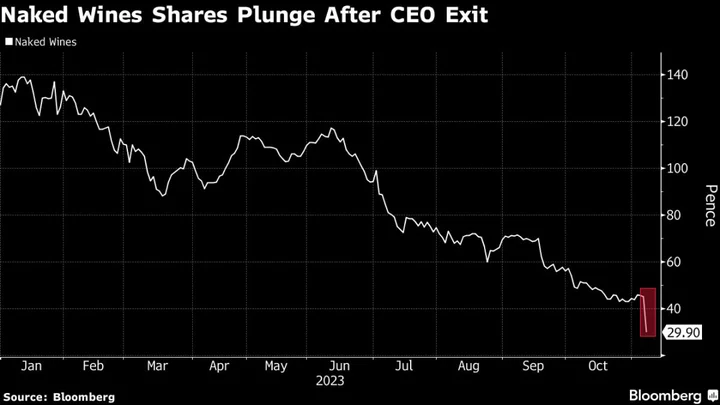
Naked Wines CEO Departs as Drinks Merchant Lowers Outlook
Online wine merchant Naked Wines Plc lowered its full-year revenue and profit guidance on weak trading in the
2023-11-07 18:48
